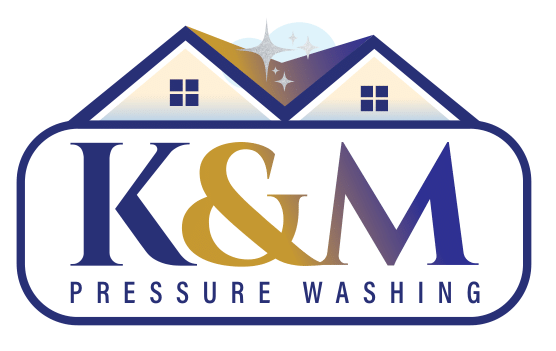 Pressure washing is a popular and effective method for cleaning various surfaces, including driveways, sidewalks, buildings, and vehicles. Moreover, its ability to remove dirt, grime, mold, and mildew quickly makes it a preferred choice for homeowners and businesses alike. However, while pressure washing can enhance the appearance of your property, it is essential to consider its environmental impact. Additionally, understanding the potential consequences and adopting eco-friendly practices can help mitigate these effects.
Pressure washing is a popular and effective method for cleaning various surfaces, including driveways, sidewalks, buildings, and vehicles. Moreover, its ability to remove dirt, grime, mold, and mildew quickly makes it a preferred choice for homeowners and businesses alike. However, while pressure washing can enhance the appearance of your property, it is essential to consider its environmental impact. Additionally, understanding the potential consequences and adopting eco-friendly practices can help mitigate these effects.
Water Usage and Waste
One of the most significant environmental concerns associated with pressure washing is the substantial amount of water it uses. High-pressure washers can consume up to 4 gallons of water per minute, which can add up quickly during an extensive cleaning session. Furthermore, this large volume of water often goes to waste, especially if it runs off into storm drains or non-permeable surfaces.
To reduce water usage, consider using a pressure washer with adjustable settings to control the flow rate and pressure. Additionally, capturing and reusing water with a water reclamation system can significantly cut down on waste. Moreover, selecting a pressure washer with a high-efficiency nozzle can help conserve water while still providing effective cleaning power.
Chemical Runoff
Pressure washing often involves the use of detergents and cleaning solutions to enhance its effectiveness. However, many of these chemicals can be harmful to the environment. When used in large quantities, they can contaminate soil, waterways, and aquatic ecosystems. Additionally, the runoff from pressure washing can carry these pollutants into storm drains, leading to further environmental degradation.
To minimize chemical runoff, choose biodegradable and eco-friendly cleaning products. Moreover, consider using plain water or a vinegar solution for lighter cleaning tasks. Additionally, always follow the manufacturer’s instructions for dilution and application to ensure you are using the appropriate amount of product. Furthermore, containing and properly disposing of wastewater can prevent harmful chemicals from entering the environment.
 Soil and Vegetation Impact
Soil and Vegetation Impact
The high pressure of water used in pressure washing can also impact soil and vegetation. Intense water pressure can erode soil, displace mulch, and damage plants. Additionally, chemical runoff can alter soil pH levels and harm plant health.
To protect soil and vegetation, use lower pressure settings when cleaning near plants and avoid direct contact with the soil. Moreover, covering nearby plants with a tarp or plastic sheet can shield them from water and chemical exposure. Additionally, rinsing plants with clean water after Myrtle Beach pressure washing can help remove any residual chemicals.
Noise Pollution
Pressure washers can generate significant noise, which contributes to noise pollution, especially in residential areas. Excessive noise can disturb wildlife, pets, and neighbors, leading to various health and behavioral issues.
To reduce noise pollution, consider using an electric pressure washer, which tends to be quieter than gas-powered models. Additionally, scheduling pressure washing in Myrtle Beach during daytime hours can minimize disturbances to both wildlife and people. Furthermore, using sound-dampening accessories or noise barriers can help reduce the impact of noise on the surrounding environment.
Energy Consumption
Most pressure washers, particularly gas-powered ones, consume a considerable amount of energy. The production and use of this energy contribute to greenhouse gas emissions and environmental degradation.
To lessen energy consumption, opt for energy-efficient models and use the pressure washer only when necessary. Moreover, maintaining your equipment in good condition ensures it operates efficiently, reducing energy usage. Additionally, consider using renewable energy sources, such as solar power, to offset the environmental impact of traditional energy consumption.
Best Practices for Eco-Friendly Pressure Washing
In addition to the specific measures mentioned, adopting the following best practices can further minimize the environmental impact of pressure washing:
Regular Maintenance: Keeping your pressure washer in optimal condition ensures efficient operation and reduces the risk of leaks or malfunctions that could harm the environment.
Targeted Cleaning: Focus on areas that truly need cleaning rather than indiscriminately washing large surfaces. This approach saves water and reduces chemical usage.
Proper Waste Disposal: Collect and dispose of wastewater and debris according to local regulations to prevent environmental contamination.
Education and Training: Educate yourself and your team on eco-friendly pressure washing techniques and the importance of environmental stewardship.
While pressure washing is an effective method for driveway cleaning, roof cleaning, deck cleaning, and window cleaning, it is crucial to be mindful of its environmental impact. By adopting eco-friendly practices and making informed choices, you can enjoy the benefits of pressure washing while minimizing its negative effects on the environment.
Ready to make a positive impact? Contact K&M Pressure Washing LLC today to learn more about our eco-friendly pressure washing services and how we can help you achieve a clean and sustainable property.
Like our Facebook page for more great info.

 Soil and Vegetation Impact
Soil and Vegetation Impact